Introduction
Navigating the educational landscape for children with disabilities often requires a thorough understanding of specialized services designed to support their unique learning needs. Extended School Year (ESY) Services emerge as a critical component in this journey, ensuring that students with disabilities continue to thrive academically and socially, even beyond the regular school year. These services are tailored to prevent skill regression during extended breaks, providing continuity and support that are essential for maintaining progress.
Eligibility for ESY is meticulously assessed through a student's Individualized Education Program (IEP), ensuring personalized support aligned with each child's specific needs. With federal and state laws advocating for instruction in the least restrictive environment, ESY Services play a pivotal role in integrating students with disabilities into general education settings, promoting inclusivity and equitable access. Programs like the Inclusionary Practices Professional Development Project (IPP) highlight the ongoing efforts to create supportive educational environments, ensuring that students with disabilities can learn and grow alongside their peers.
This article delves into the definition, purpose, and eligibility criteria of ESY Services, along with insights into the components and delivery methods that make these services effective. It also addresses legal requirements, parental rights, and common misconceptions, empowering parents and educators with the knowledge to advocate for the best possible educational outcomes for children with disabilities.
Definition of Extended School Year Services
Extended School Year (ESY) Services are specialized educational programs offered to individuals with disabilities beyond the typical academic calendar. These services are crucial for maintaining and enhancing the skills individuals have developed during the regular school year. The primary objective of ESY is to prevent the regression of skills that can occur during extended breaks in education.
Eligibility for ESY is determined through an individualized assessment, often part of the individual's Individualized Education Program (IEP). This guarantees that the services are customized to fulfill the distinct requirements of each learner, tackling particular areas where they may be at risk of losing progress.
The importance of ESY services is underscored by the efforts of various educational initiatives aimed at promoting inclusivity and equitable access to education. For example, the Inclusionary Practices Professional Development Project (IPP) in Washington state has achieved considerable success, with nearly 22,000 individuals with impairments now spending more time in general education environments. Such initiatives emphasize the continuous efforts to create a nurturing educational atmosphere for everyone, ensuring that those with challenges continue to flourish alongside their companions.
Furthermore, federal and state regulations highlight the necessity for teaching in the least restrictive setting, supporting the inclusion of individuals with challenges into mainstream education classrooms whenever feasible. This approach not only supports academic growth but also fosters social development and inclusion.
In summary, ESY services play a vital role in the educational journey of individuals with challenges, offering them the continuity and support needed to succeed year-round.
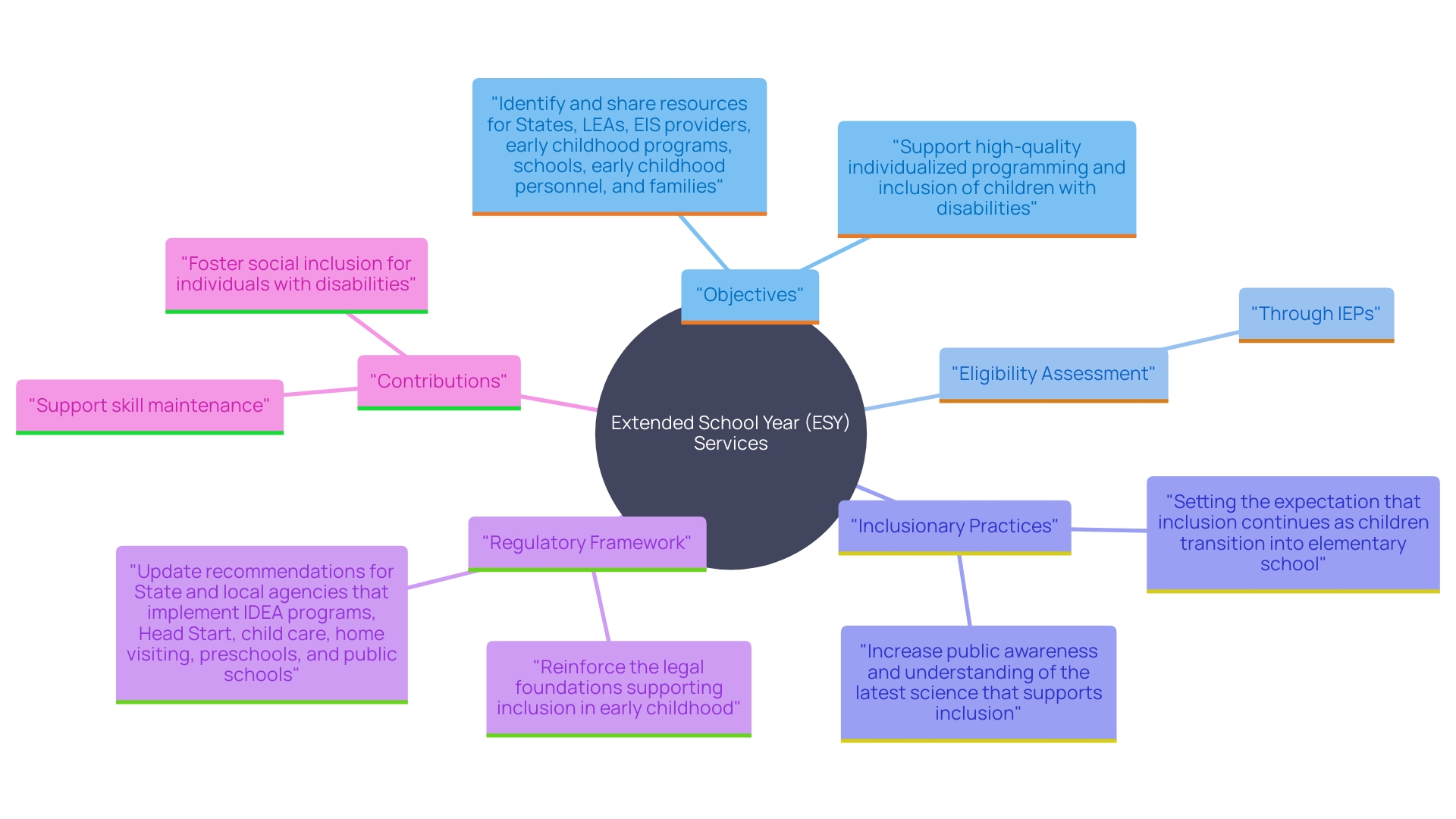
Purpose of ESY Services
The main objective of ESY Services is to guarantee that learners do not lose the abilities they have developed during the academic year. This is essential for sustaining advancement and enabling ongoing development, especially for individuals who need extra assistance because of their challenges. In the present academic year, 65.1% of all learners in Washington with special needs are accommodated in mainstream educational environments for 80–100% of the day. This represents an increase of 1.7 percentage points compared to last year, highlighting the importance of inclusive practices and the role of ESY in supporting continuous skill development. 'Furthermore, the Inclusionary Practices Professional Development Project (IPP) initiated in 2019 has demonstrated notable advancement, with the proportion of individuals with challenges in mainstream educational environments for 80–100% of the academic day rising from 44.2% in 2018 to 64% at present. These efforts highlight the importance of ESY services in ensuring that individuals with challenges continue to excel academically and socially, even during breaks.
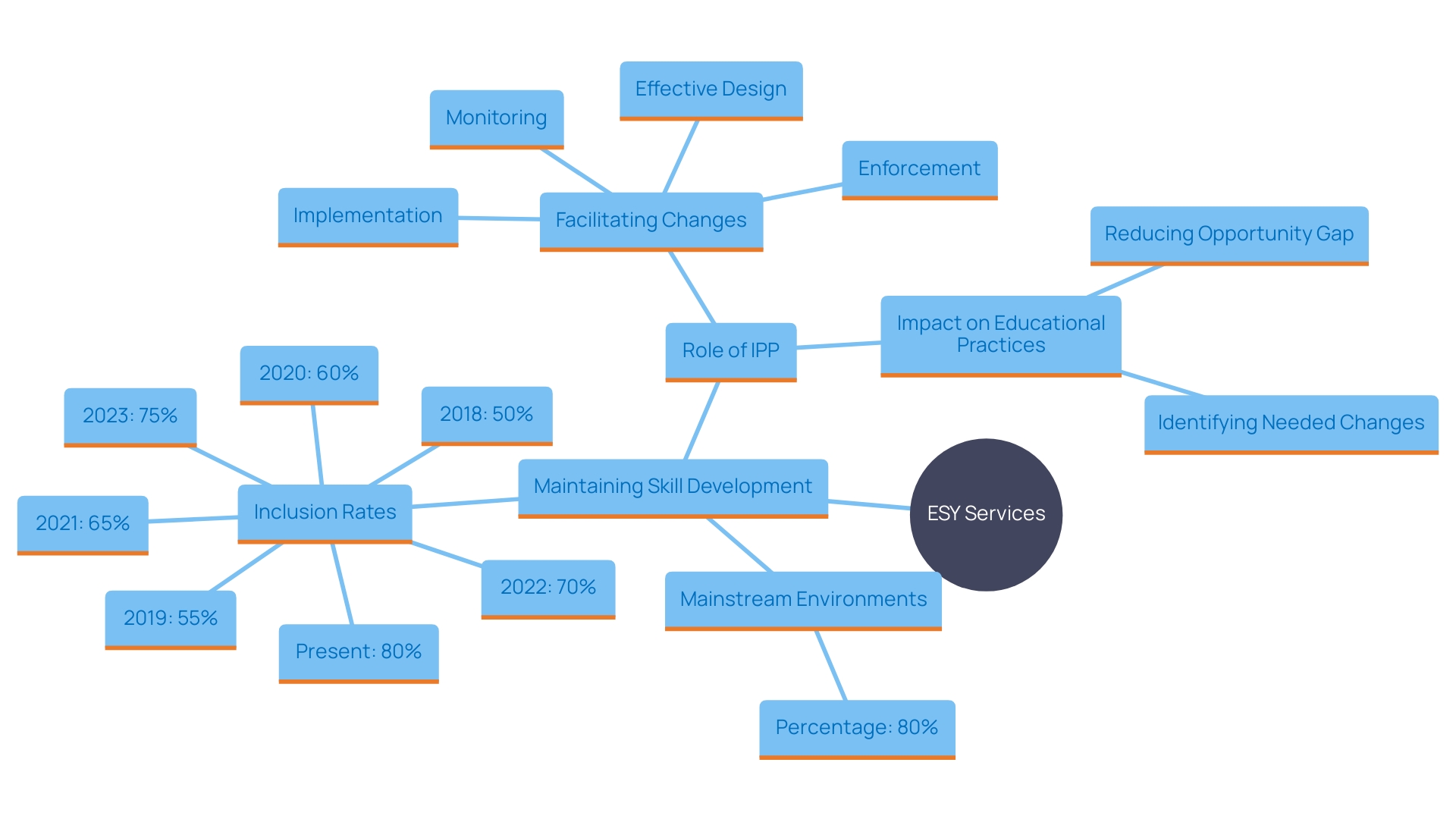
Eligibility Criteria for ESY Services
Determining eligibility for Extended School Year (ESY) services involves several critical factors. These encompass the seriousness of the individual's disability, the probability of substantial regression during breaks, and the person's capacity to regain lost skills once classes resume. The Individualized Education Program (IEP) team, which includes educators, specialists, and family members, plays a pivotal role in this assessment. They assess the individual's unique needs and progress, ensuring that ESY services are customized to sustain the educational advancements made during the regular school year. This comprehensive approach aids in making informed decisions that support the learner’s continuous educational journey.
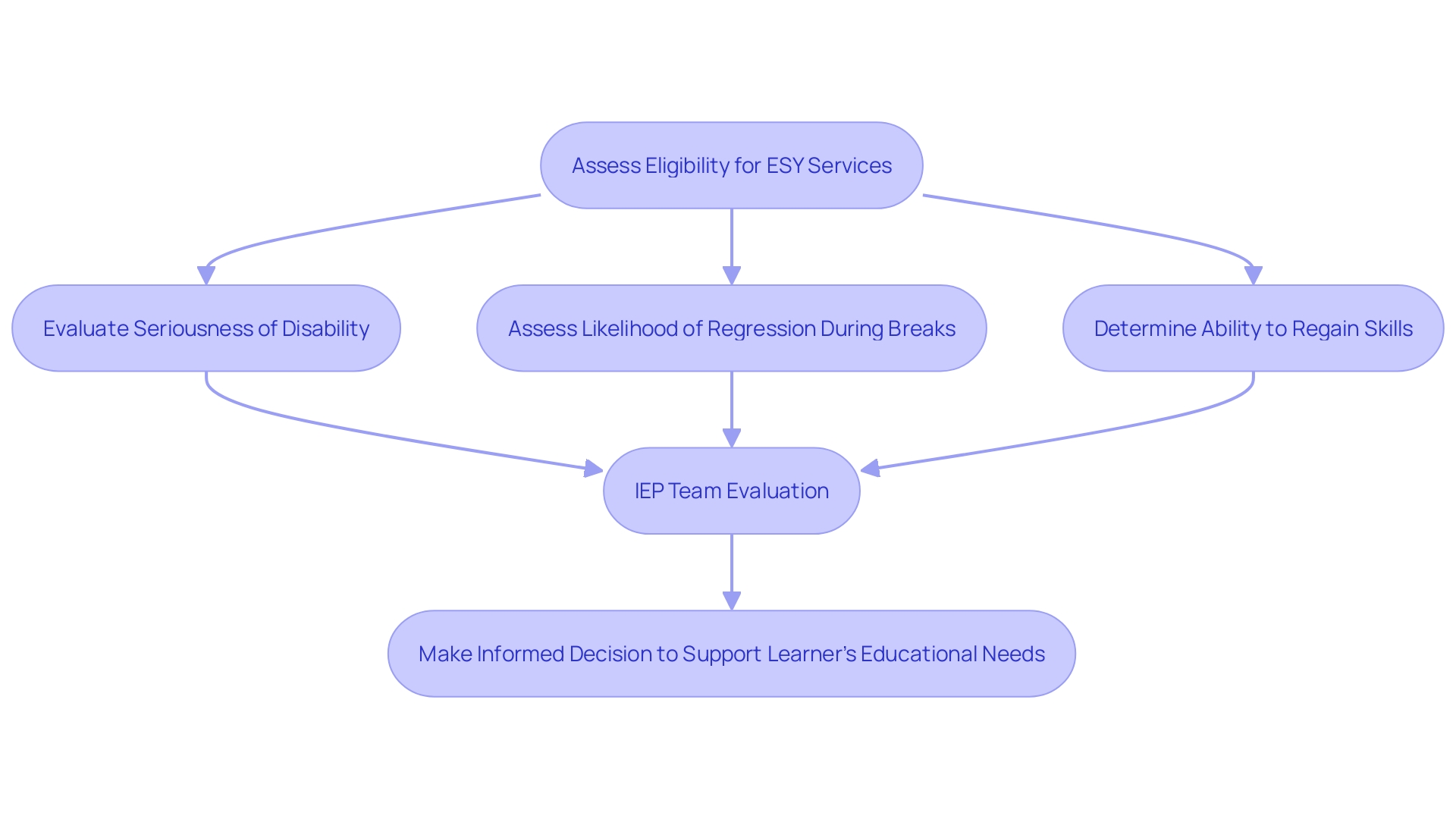
Determining the Need for ESY Services
The need for ESY Services is determined through a comprehensive evaluation during the IEP meeting. This process involves analyzing historical performance data, gathering parental input, and considering professional observations. Ongoing assessments play a crucial role in this evaluation, ensuring that data is current and relevant to the learner's needs. By involving families in the assessment process, through tools like interest inventories and home observations, the IEP team can better understand the individual's strengths, interests, and needs. This cooperative method assists in making knowledgeable choices regarding whether an individual would gain from ESY, ultimately focused on preserving and improving the advancements achieved during the standard academic year.

Components of ESY Services
ESY Services encompass a diverse range of components tailored to the unique needs of each learner, as outlined in their Individualized Education Program (IEP). These services often integrate academic instruction provided by licensed teachers, therapeutic services, and social skills training. The partnership between educational leaders and community-based organizations (CBOs) guarantees a thorough approach, establishing a secure and nurturing atmosphere where learners' social and emotional needs are addressed. For instance, Monroe, a partner institution with the Haring Center for Inclusive Education, demonstrates how inclusive practices benefit all learners by receiving coaching and professional development to foster a learning environment that meets federal requirements for the least restrictive setting. Across the country, initiatives to incorporate learners with special needs into standard education settings have made noteworthy advancements, with two-thirds achieving this objective by the autumn of 2022. The dedication to high-quality, evidence-based early childhood initiatives further emphasizes the significance of early inclusion, preparing the groundwork for ongoing achievement in education and beyond. As Glenna Wright-Gallo, Assistant Secretary for the U.S. Department of Education’s Office of Special Education and Rehabilitative Services, emphasizes, "Setting high expectations for early inclusion paves the way for children with challenges to reach their goals and to learn, live, and thrive in school and in their communities."
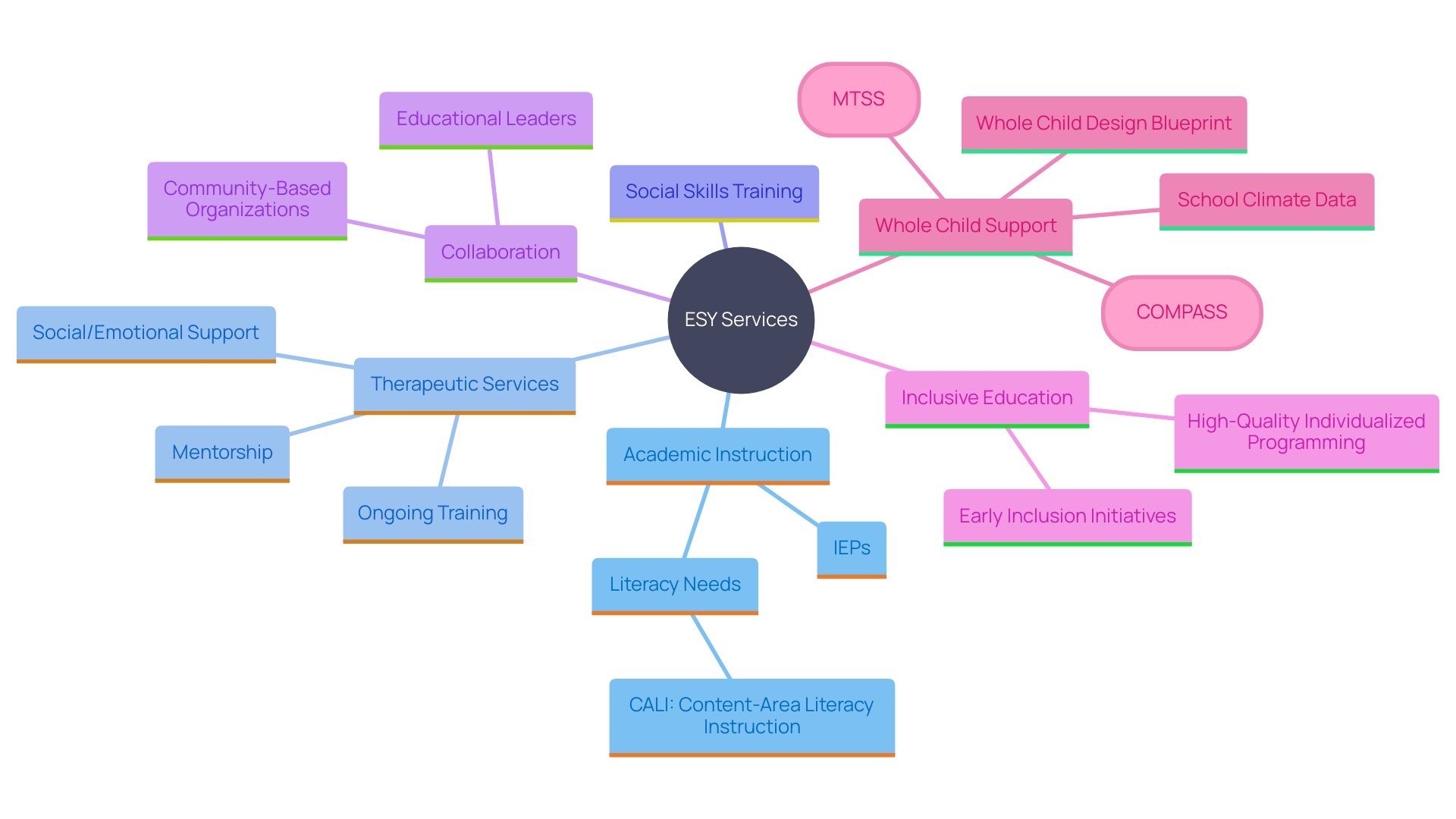
How ESY Services Are Provided
ESY Services can be delivered in various formats, including in-person classes, online learning, or home-based instruction. These methods are designed to address the distinct requirements of each learner and the resources available. For example, Monroe School in Washington state collaborates with the Haring Center for Inclusive Education to ensure that individuals with challenges receive the necessary assistance. The partnership shows that everyone gains when schools are designed with inclusivity in mind. A state government grant has facilitated this initiative, aiming to have individuals with challenges spend at least 80% of their time in general education classrooms. Such collaborative efforts have led to an increase in the number of individuals with challenges participating in general education, highlighting the effectiveness of tailored ESY delivery methods. 'Based on recent information, there has been a notable increase in individuals with challenges engaging in mainstream educational environments, which demonstrates the beneficial effects of these inclusive approaches.'.
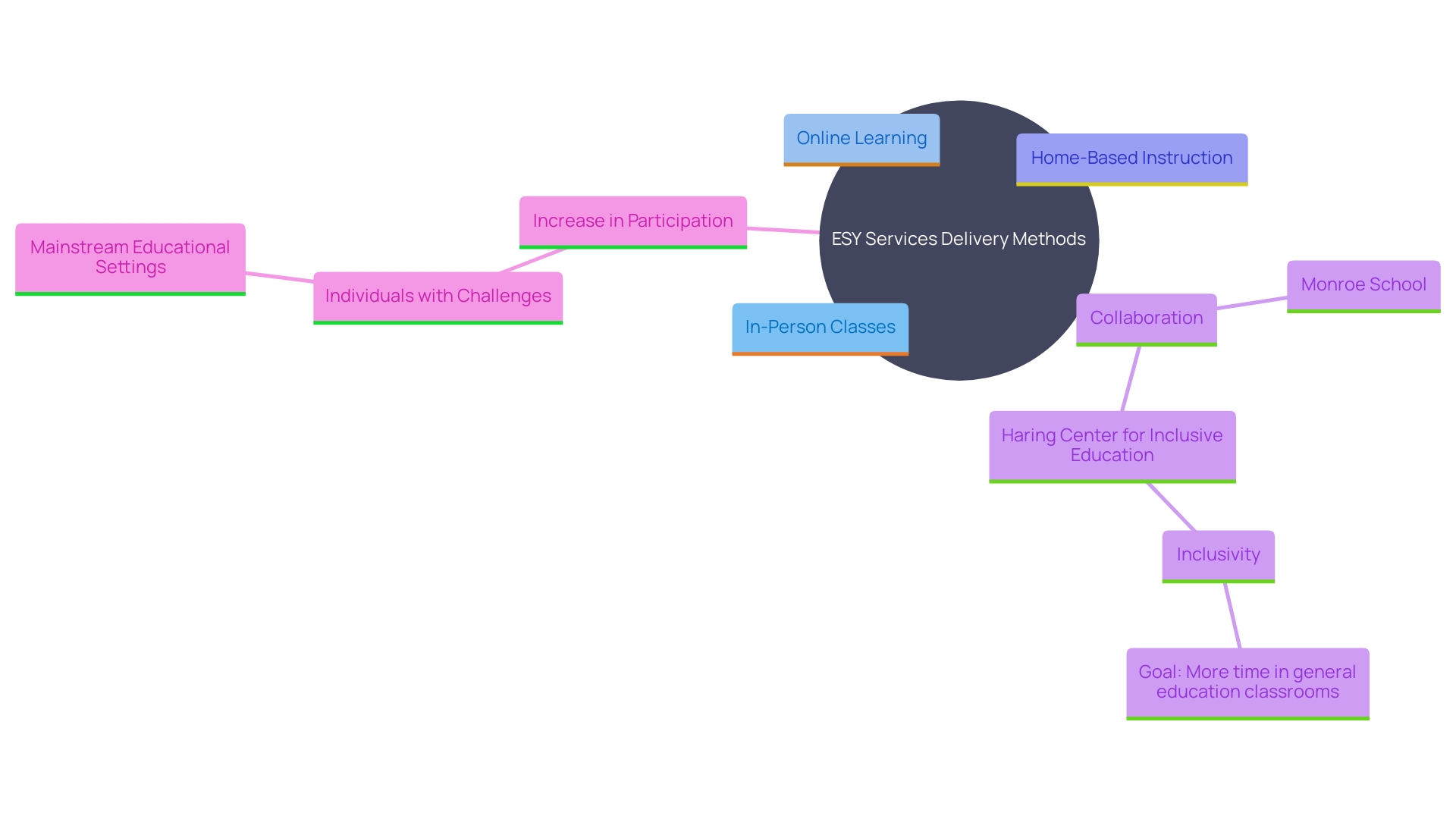
Legal Requirements and Guidelines for ESY
'The provision of ESY Services is directed by the Individuals with Disabilities Education Act (IDEA), a crucial law ensuring that individuals with impairments receive a free appropriate public education (FAPE).'. This law requires that states, local education agencies (Leas), and other educational institutions provide necessary services to support the unique educational needs of individuals with disabilities. Schools are required to follow both federal and state guidelines to determine eligibility and the scope of services offered. The aim is to sustain the advancements achieved during the typical academic year and avert decline, thus encouraging ongoing education and growth for these students.
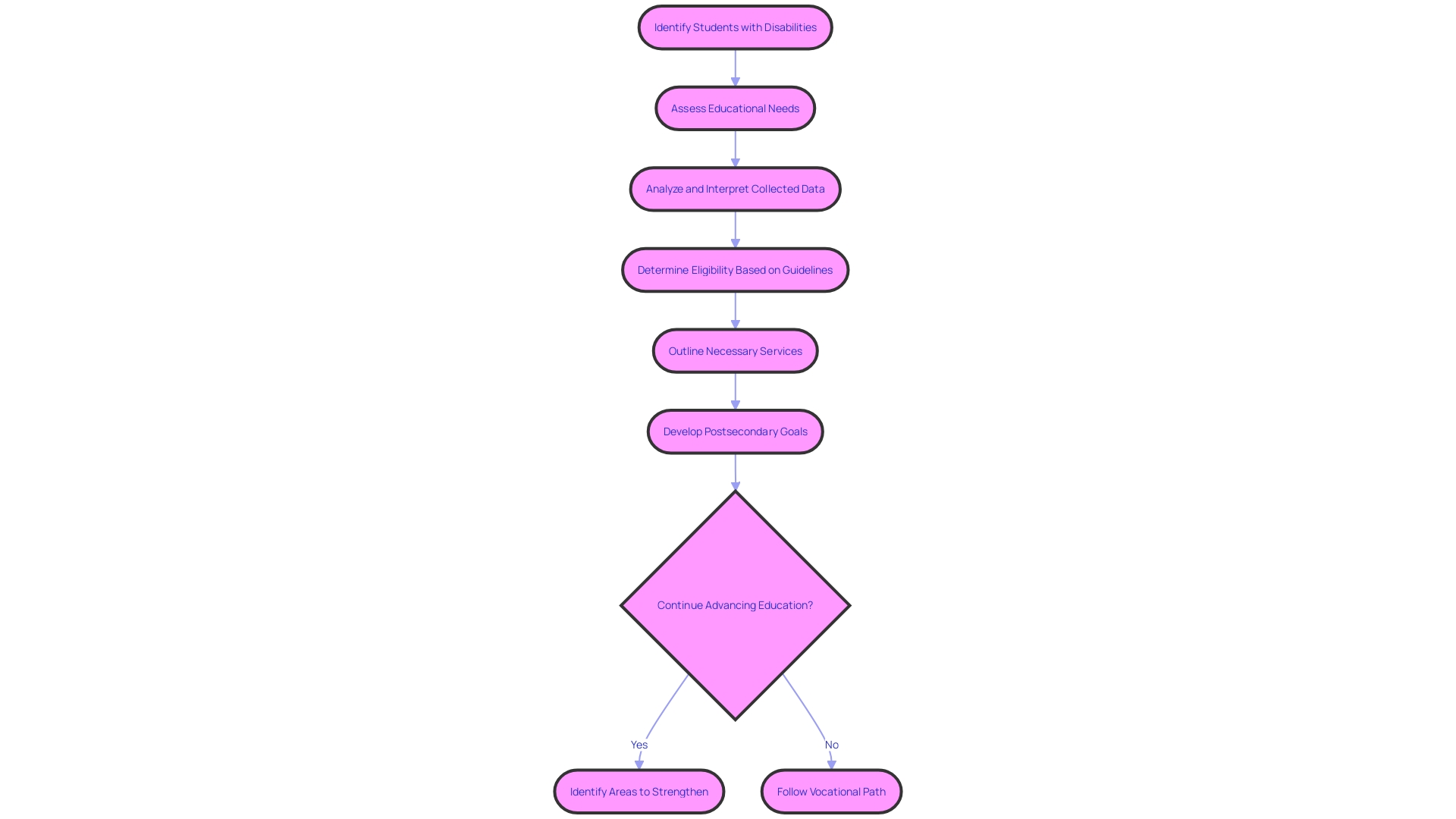
Parental Rights and Responsibilities in ESY Decision-Making
Parents are essential partners in the ESY decision-making process. They have the right to actively participate in discussions about their child's eligibility and services, ensuring that their child's unique needs are met. This involvement is crucial for crafting an effective Individualized Education Program (IEP), which outlines the necessary supports and services. Research emphasizes the significance of parent advocacy, especially for children needing extra assistance, as educational institutions often fail to deliver necessary services. By engaging in their child's education, parents help secure the continuity of support needed for their child’s success and prevent skill regression during breaks. This collaboration between caregivers and educational institutions is essential for sustaining advancement and creating a setting where children with challenges can flourish.
Common Misconceptions About ESY Services
There are several misunderstandings surrounding ESY Services, such as the belief that they are only available for individuals with significant challenges or that they are not needed for learners who are making satisfactory progress. For instance, many parents assume that if their child is performing well in school, ESY services are not needed. However, the true purpose of ESY is to prevent regression during breaks, ensuring that all individuals with challenges, regardless of the severity of their condition, maintain and build upon their progress.
Understanding the broader impact and necessity of ESY can help parents make informed decisions. Recent data from Washington state show that increasing numbers of individuals with disabilities are spending more time in general education classrooms, benefiting from inclusive education practices. This aligns with federal mandates to provide education in the least restrictive environment, a principle that ESY services support by ensuring continuity in learning.
Furthermore, a declaration from special education officials emphasizes the significance of personalized education programs (IEPs) and transition plans in equipping individuals for success after school. These plans, which include ESY services, are crucial in equipping individuals with the skills they need for adulthood. As Secretary of Education Miguel Cardona emphasizes, we must ensure equitable access to educational resources and support for all students, including those with disabilities, to address disparities and promote inclusive learning environments.
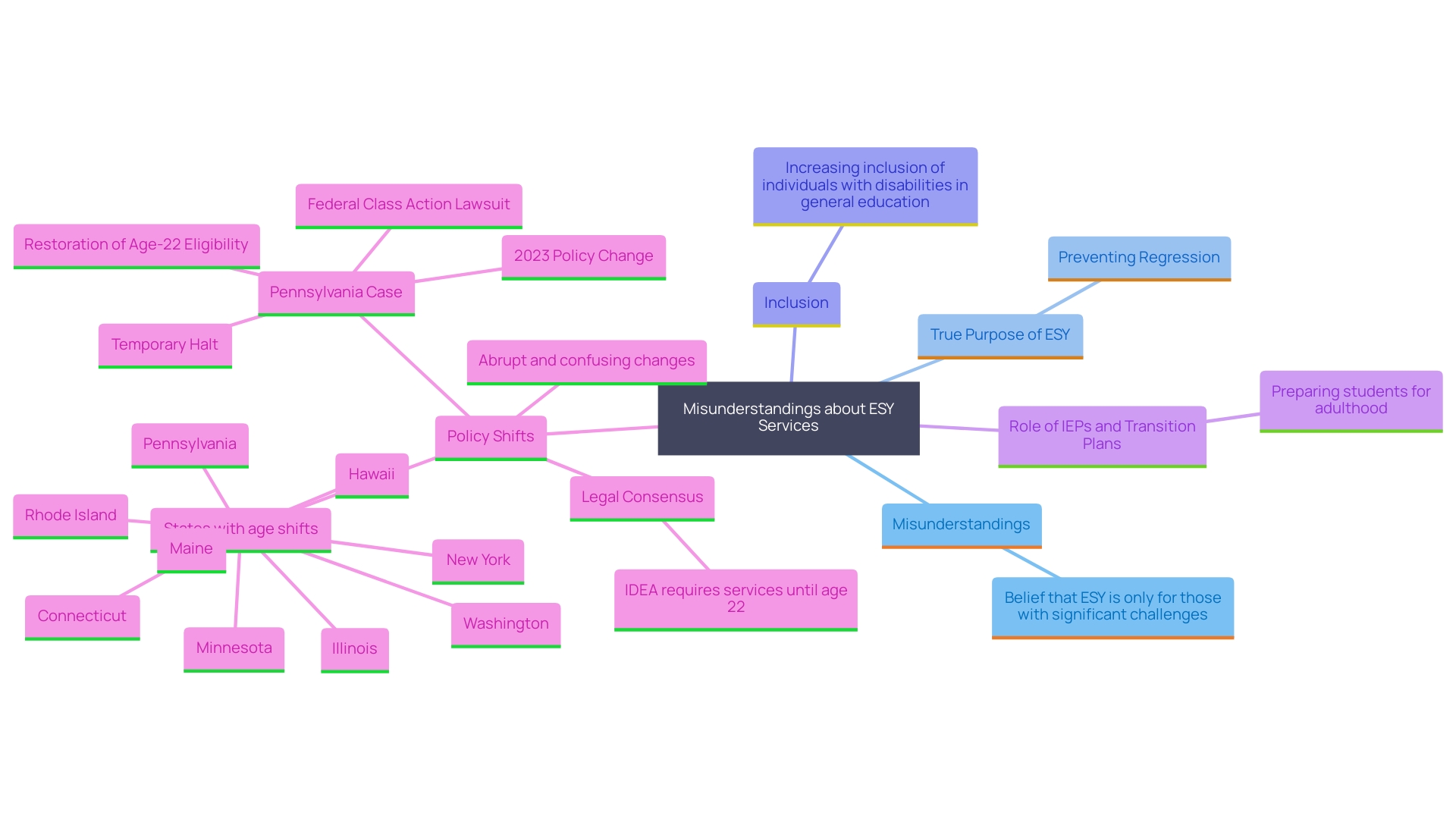
Conclusion
Extended School Year (ESY) Services are essential for students with disabilities, helping them maintain and enhance their skills year-round. Designed to prevent regression during breaks, these programs ensure that students continue to thrive academically and socially. The IEP team is instrumental in assessing eligibility, providing tailored support based on each student’s unique needs.
Beyond skill retention, ESY Services promote continuous growth and facilitate integration into general education settings. Increasing participation of students with disabilities in inclusive classrooms highlights the effectiveness of these services. Parental involvement is crucial; parents advocate for their children’s needs and contribute to effective IEP development.
Common misconceptions about ESY can limit access to these vital services. It is important to recognize that ESY benefits all students with disabilities, not just those struggling academically. By educating themselves and advocating for their children, parents and advocates can navigate the educational landscape more effectively, ensuring that every child receives necessary support.
In summary, ESY Services are a critical component of an inclusive educational framework. By understanding their rights and advocating for these services, parents and educators can work together to maintain educational progress throughout the year, empowering all students to succeed.




